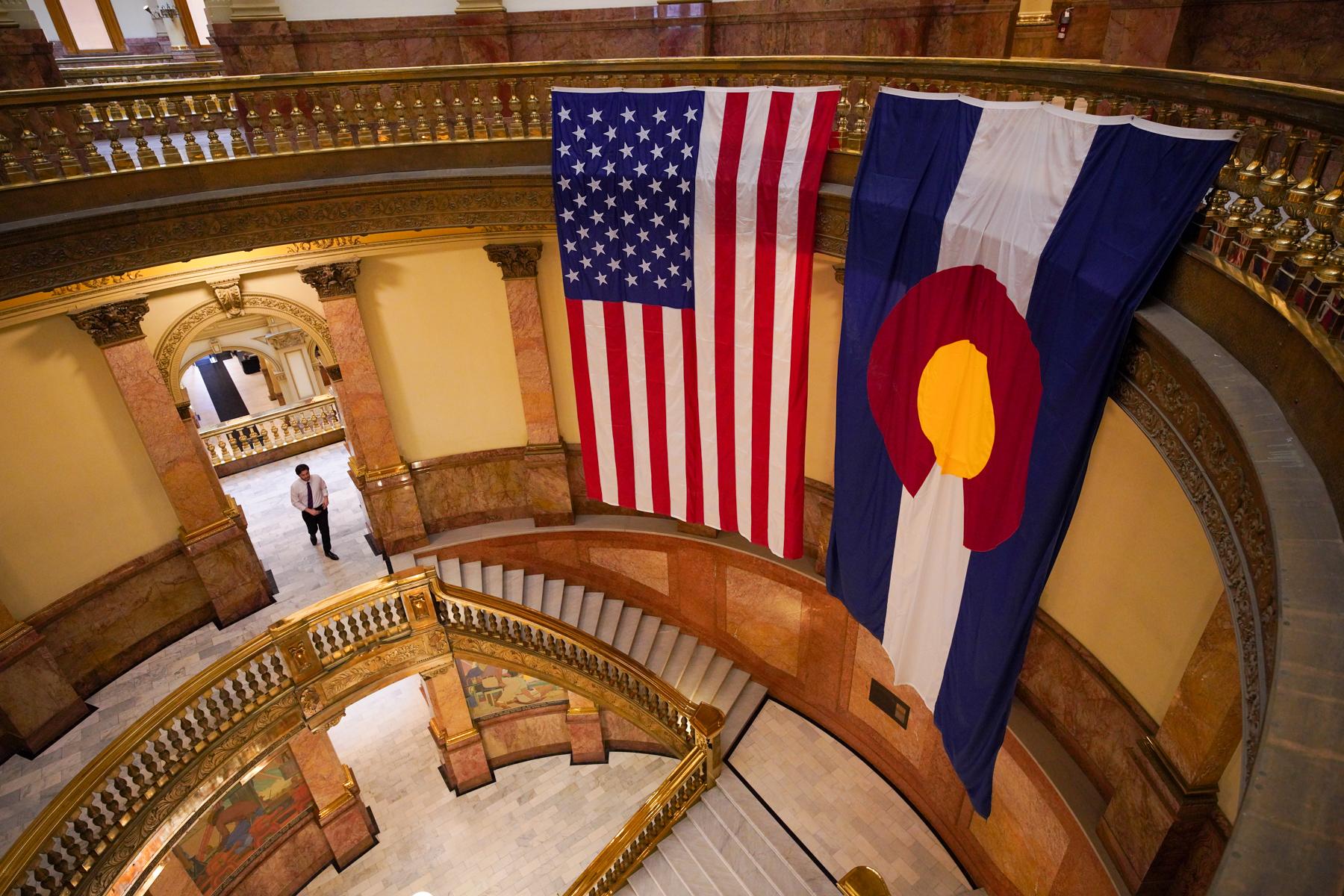
Updated at 2:13 p.m. on Aug. 1, 2023.
The Colorado Republican Party is suing the state in an attempt to stop unaffiliated voters, the state’s largest voting bloc, from participating in Republican primary elections.
The lawsuit, filed in federal court in Denver on Monday, alleges that Proposition 108, which voters approved in 2016, is unconstitutional. The initiative required major political parties to allow unaffiliated voters to participate in primary elections. It also included an opt-out clause for parties, if three-fourths of a party’s central committee agrees.
If the suit is successful in striking down Prop 108, it could mean unaffiliated voters would not be able to participate in any party primaries — Republican or Democratic.
The State GOP says the law infringes on the constitutional rights of Republicans including, “the right of political parties to choose their nominees for office without interference by those who are not members of the party and have chosen not to affiliate with the party.”
Of Colorado’s major parties, Republicans have the smallest share of registered voters, followed by Democrats. Unaffiliated voters now comprise the largest percentage of the state’s voters. And the lawsuit alleges that unaffiliated voters have an undue and possibly determinative influence on who Republicans nominate, and can potentially work with Democrats to try to get strong GOP contenders ousted in primary races.
Democratic Secretary of State Jena Griswold’s office is named in the suit. “The court dismissed the prior lawsuit and we continue to believe the new lawsuit has no merit. As Secretary of State, I will always stand up for voters to ensure that their constitutional right to cast a ballot is protected,” she said in a written statement.
The head of the Colorado Democratic Party blasted the effort and said the state Republican party is at odds with the voters.
“The MAGA extremists running the Colorado GOP don’t need to blame Prop 108 for their historic losses: they simply need to take a look in the mirror,” said Chair Shad Murib. “The Democratic Party is a big-tent, and we welcome participation in our democracy.”
Attorney John Eastman, with the Constitutional Counsel Group, is representing the Colorado GOP. He also represented Colorado GOP candidates in 2020 who sued to close the party primary, but the case was dismissed because they did not have legal standing. Eastman is currently facing possible disbarment proceedings in California over his role in former President Donald Trump’s efforts to try to overturn the 2020 presidential election.
The Colorado GOP also argues that the provision to allow a party to opt out of the primary is too burdensome because it requires a three-fourths majority of a party’s central committee, and even then is only valid for the following year’s primary.
“Proposition 108 further burdens the exercise of the right of Freedom of Association by imposing a specific voting requirement rather than leaving it to the political party to determine the vote required to select a method of candidate selection, as political parties generally do in their bylaws,” according to the lawsuit.
The lawsuit is part of a multi-prong effort to change how the Colorado GOP nominates its candidates.
This Saturday Republican party members are meeting to deliberate changing the rules to make it easier to opt-out of the primary, including counting an absent vote as an automatic “yes” vote for the opt-out.
New state party chair Dave Williams is spearheading the effort. He made it a central part of his campaign as chair. But the party is deeply divided on those potential rule changes and the issue of opting out.
Many Republicans believe including unaffiliated voters in the primary is a good thing, because it gets the GOP candidate's name before more voters and requires those running for office to appeal to a broader swath of the electorate.









